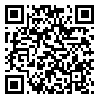BibTeX | RIS | EndNote | Medlars | ProCite | Reference Manager | RefWorks
Send citation to:
URL: http://mjiri.iums.ac.ir/article-1-3178-en.html


 , Robab Sahaf
, Robab Sahaf 

 , Hamid Reza Khankeh
, Hamid Reza Khankeh 

 , Reza Fadayevatan
, Reza Fadayevatan 

 , Reza Majdzadeh
, Reza Majdzadeh 

 , Masoud Karimlou
, Masoud Karimlou 


Background: The elderly population’s health has become a priority as their numbers are on the rise and they are increasingly becoming vulnerable to physical and mental diseases. Studies show that an elderly person’s health depends on his/her utilization of health knowledge in daily life. Hence, here we investigated the contributing factors of knowledge utilization in the elderly population.
Methods: A qualitative study was conducted through conventional content analysis. Semi-structured in-depth interviews were held with 29 elderly individuals from Tehran. A focus group discussion was conducted (eight elderly individuals), and an expert panel was held with nine experts to complement the results.
Results: Upon data analysis, four categories and seven subcategories were extracted. The main categories included provision of basic needs, maintaining dignity, life satisfaction, and negative feelings toward self and others. The concept of ‘life satisfaction’ held a pivotal role in relation to the other categories.
Conclusion: Life satisfaction was the main category in the utilization of health knowledge among the elderly. Aging should be foreseen and forethought to increase life satisfaction. The followings can be effective in increasing life satisfaction in the elderly: Promoting positive-thinking, placing greater emphasis on spiritualism in life, employment of the elderly, and promoting the culture and tradition of respecting the elderly.
| Rights and permissions | |
 |
This work is licensed under a Creative Commons Attribution-NonCommercial 4.0 International License. |





